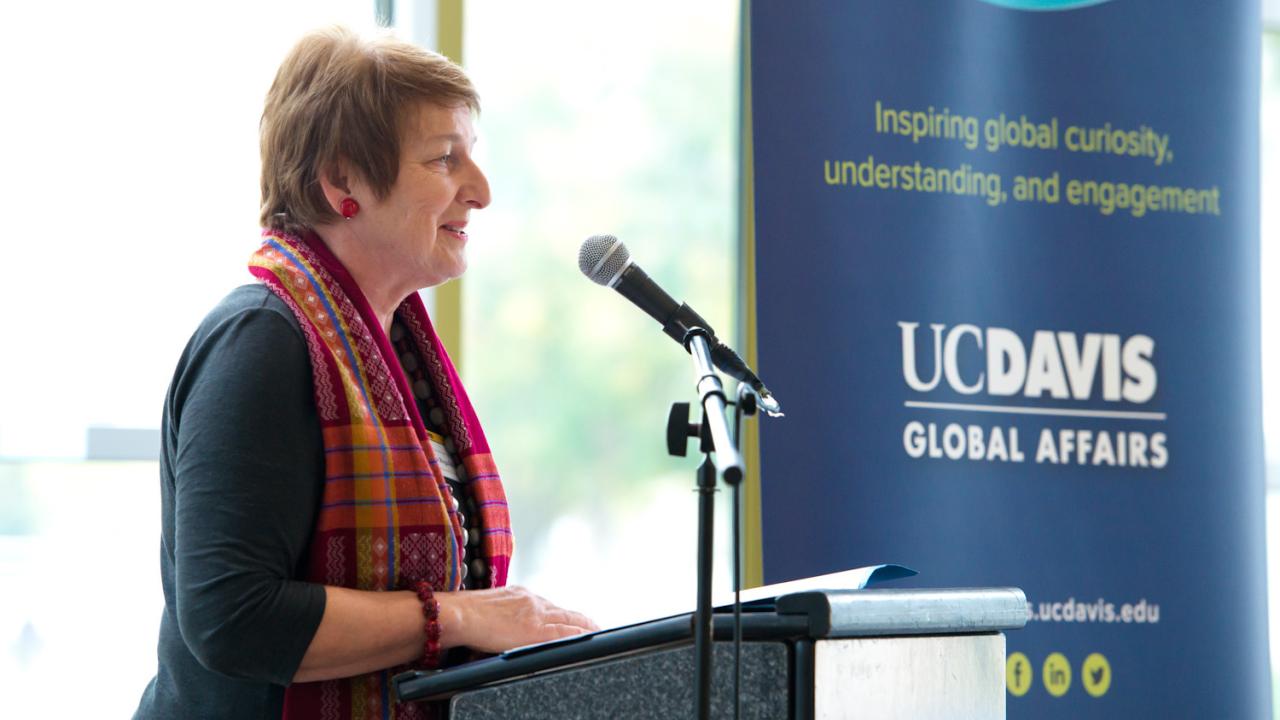
European Association for International Education (EAIE): In Conversation with Joanna Regulska
By Laura Rumbley, European Association for International Education (EAIE)
"Joanna Regulska is Vice Provost and Associate Chancellor of Global Affairs at University of California, Davis, where she is also a professor of Gender, Sexuality and Women’s Studies. Joanna has established gender studies programmes at multiple European institutions. Her gender studies research focuses heavily on Europe and the Caucasus, making her the perfect fit for our issue on gender in internationalisation.
What first led you to this interest in studying gender, sexuality and women’s studies? What made this topic important for you, both intellectually and professionally?
JR: A lot of interest was generated by my own personal experience. I emigrated to the United States, so an initial interest I had in migration translated to doing a dissertation on women migrants. Coming from Poland, many times I was asked, ‘What’s the women’s rights situation in Poland?’ and there was this ‘aha’ moment where I thought, ‘Why are people asking me this question?’ and this was really the moment where a feminist was born. That was the moment where I became far more engaged and aware of what it really means to be a woman. It has been a trajectory over time but also over space – in between Europe, Poland in particular, and the United States.
What do you see as some of the most salient issues in internationalisation of higher education in Europe, when considered through the lenses of gender and sexuality?
JR: I want to be careful not to speak for everybody, as there is a great diversity of context. I think what strikes me right now as requiring more conversation is the issue of diversity. We don’t speak enough about it in international education. When you look, for example, at who is involved in the profession, the field is actually predominately engaging women. We have a lot of women, but I wish we had more statistics on women of colour, transgender women, their ethnicity, and the sexual orientation of these women, because all of these identities and more play such an important role. We have a lot of women, but it is still a pyramid – at the top, we have a lot of male leaders. The second area involves being treated as an equal partner. Together with some of my peers, we conducted a survey and wrote a white paper about women leaders in international education. One thing that kept coming up in survey responses is that women would say, ‘I have to work extra hard, be extra professional in order to overcome being overlooked, undervalued, underestimated.’ or ‘Women are expected to work twice as hard but will earn half the credibility.’ There is a persistent feeling that we are still not equal.
Are there any policies or practices that you think are particularly effective in raising awareness about issues of gender and sexuality?
JR: A commitment to equal opportunities is very important. Even if we do have policies in place, the key is really the interpretation of the policies as well as implementation and monitoring. Does equal opportunity really mean equal access and affordability? What do we do to engage more women and men of colour? More transgender students? Or students with different degrees of abilities? How do we create awareness among faculty that there is this diversity of identities in their students? How do we At UC Davis, we don’t have graduate programmes, we have graduate groups. These groups are interdisciplinary, allowing faculty members from different disciplines to participate and thus creating a rich learning environment for students. There are so many different formal and informal ways of looking at the institution and the policies that are enforced to foster an interdisciplinary climate."
Read the full piece in the EAIE's 2018 Spring Forum or in the 2018 Spring Forum's Editor's Pick PDF.